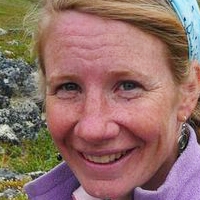Download Conversation #30
A conversation with John Clark on teaching, learning and ecology.
What is it that could possibly change people to the point that they would not only vaguely care, but make central to their lives, for instance, the survival of southeast Louisiana, or the survival of the human species, or the protection of the thousands and tens of thousands of species that are going extinct every year? What could create this change? And most of what we call education can't do it and doesn't do it.
John Clark is a native of the Island of New Orleans, where his family has lived for twelve generations, and where he and all of his children and grandchildren continue to reside. He works with Common Knowledge: The New Orleans Cooperative Education Exchange and the Institute for the Radical Imagination. He was formerly Gregory F. Curtin Distinguished Professor of Humane Letters and the Professions, Professor of Philosophy, and a member of the Environment Program faculty at Loyola University. He continues to teach in the Loyola Summer Program in Dharamsala, India. His books include Max Stirner’s Egoism, The Philosophical Anarchism of William Godwin, The Anarchist Moment, Anarchy, Geography, Modernity, The Impossible Community: Realizing Communitarian Anarchism, and The Tragedy of Common Sense (forthcoming). He edited Renewing the Earth: The Promise of Social Ecology and Elisée Reclus’ Voyage to New Orleans, and co-edited Environmental Philosophy: From Animal Rights to Radical Ecology and Les Français des Etats-Unis. Works under his pseudonym, Max Cafard, include The Surregionalist Manifesto and Other Writings, FLOOD BOOK, Surregional Explorations, and Lightning Storm Mind (forthcoming). He is at work on a second volume of The Anarchist Moment, Between Earth and Empire, a comprehensive reformulation of the philosophy of social ecology, The Nuclear Thing, an analysis of the radioactive object of the social imagination, The Trail of the Screaming Forehead, a critique of egoism and nihilism, and Bitter Heritage, a historico-philosophical reflection on culture and crisis in nineteenth-century New Orleans, based in part on his translation of four hundred pages of family correspondence from the mid-nineteenth century. He writes a column, "Imagined Ecologies," for the journal Capitalism Nature Socialism, and edits the cyberjournal Psychic Swamp: The Surregional Review. His interests include dialectical thought, ecological philosophy, environmental ethics, anarchist and libertarian thought, the social imaginary, cultural critique, Buddhist and Daoist philosophy, and the crisis of the Earth. He has long been active in the radical ecology and communitarian anarchist movements. He works on ecological restoration and eco-communitarianism, which he is striving to put into practice on an 87-acre land project on Bayou LaTerre, in the forest of coastal Mississippi. He is a member of the Education Workers’ Union of the Industrial Workers of the World.
Links for this episode:
![[flyer for campus event]](https://i0.wp.com/cat.xula.edu/food/wp-content/uploads/2023/04/Tammah-Watts.jpg?resize=625%2C810)



![[headshot]](https://i0.wp.com/cat.xula.edu/food/wp-content/uploads/2021/06/Waldron-Moore-Dr.-Pamela.jpeg?resize=200%2C200)

![[headshot]](https://i0.wp.com/cat.xula.edu/food/wp-content/uploads/2021/06/Waldron-Moore-Dr.-Pamela.jpeg?resize=250%2C262)

 Bart Everson is a media artist and creative generalist at Xavier University's Center for the Advancement of Teaching and Faculty Development. His recent work draws on integrative learning, activism, critical perspectives on technology, and Earth-based spiritual paths.
Bart Everson is a media artist and creative generalist at Xavier University's Center for the Advancement of Teaching and Faculty Development. His recent work draws on integrative learning, activism, critical perspectives on technology, and Earth-based spiritual paths.
